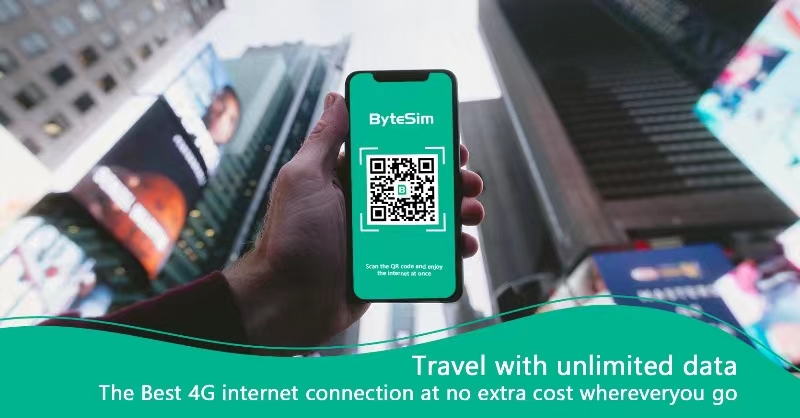Troubleshooting for Network Access Failure on Pixel
Jan 30,2024 | wilming
1. Open Mobile Data2. Disable Airplane Mode3. Set up Your Network Settings 1. Network Type 2. Network Provider 3. APN4. Verify Data Plan Status 5. Confirm Network Coverage 6. Restart and Update Your Pixel ConclusionTroubleshooting More Problems:

photo medium shot woman posing with question mark
Network access is a necessity for both businesses and individuals in the modern digital era. Network access failures, however, can disrupt workflows, hinder productivity, and lead to frustration. It is vital to effectively address network access failures, whether in a professional setting or at home. To effectively resolve network access issues for Pixel users, this troubleshooting guide will delve into proactive strategies and practical solutions. Let's get started!

1. Open Mobile Data
When encountering cellular data failures, often the causes are simple and fundamental, such as the mobile data switch not being enabled. The solution is straightforward: navigate to your home interface and check if the Mobile Data is toggled on. If not, simply tap the button to activate it. Additionally, you can access Settings>Network & internet>Internet, where you will find a list of eSIM/SIM data plans. Tap into the corresponding eSIM/SIM button and turn on your Mobile data switch.

2. Disable Airplane Mode
Another essential check is to ensure that airplane mode is switched off. When airplane mode is activated, it disables all wireless network connections, including Mobile data, Wi-Fi, and Bluetooth. In order to disable airplane mode, you have two choices: either scroll down the notification bar interface on your home screen or navigate to Settings>Network & internet and make sure the airplane mode option is set to off.

3. Set up Your Network Settings
Successfully accessing the network relies heavily on the network settings on your device. To review and validate the network settings thoroughly, it is important to ensure that they are configured correctly.
1. Network Type
Once you access Settings>Network& internet>SIMs, you will see a list of eSIM/SIM network settings info. Scroll down the page and you will view the " Preferred network type". Enter it and change the data mode as it presents. It is generally recommended to choose 5G Auto or 4G/LTE for network access, as 5G is currently not as popular as 4G/LTE.

2. Network Provider
On the same page with " Preferred network type", scroll down to the bottom. You will see " Automatically select network" under " Network". To select the network, you can either toggle on Auto mode or manually choose the provider(s) that support your data plan by toggling it off.

3. APN
In most cases, the APN is automatically adjusted based on your chosen provider(s). However, network access issues may arise if the automatic change fails. To address this, navigate to Settings>Network & internet>Internet. Then, select the corresponding SIM/eSIM data plan. Scroll down the interface to find the Access Point Names (APN) section. Tap the " ..." button at the upper right of the APN page to set your APN. If you are uncertain about the accuracy of the APN, you can reach out to the carrier's customer service or access a browser (if Wi-Fi or other mobile data is available) for further assistance.

4. Verify Data Plan Status
When troubleshooting network connectivity issues, it's vital to consider your data usage status. If you exceed your data limit, your mobile service provider may reduce your data speeds or disable your data access until the next billing cycle. To monitor your data usage, access the data usage settings on your device or use your mobile service provider's app or website. If you've reached your data limit, consider upgrading your plan or purchasing additional data to restore network access.

5. Confirm Network Coverage
In addition to monitoring data usage, it's crucial to ensure that you are within the network coverage area. Network coverage can vary based on your location and the service coverage provided by your mobile carrier. If you're in an area with limited or no network coverage, you may face difficulties connecting to the network. If you're experiencing a weak network signal, you might want to think about moving to an area with a stronger signal or contacting your service provider to inquire about coverage in your current location.
6. Restart and Update Your Pixel
If you've already explored the previous solutions, consider rebooting and updating your Pixel to refresh the operating system. Over time, the device OS may encounter performance issues or glitches that can impact network connectivity. Power cycling your device can clear temporary issues and reset the device to a stable state, potentially resolving connectivity problems and restoring your network connection.
Conclusion

Network connectivity issues may arise due to a range of factors, such as mobile data settings, data usage, network coverage, and network configuration. Network access problems on your Pixel phone can be challenging, but with the right troubleshooting steps, you can often identify and resolve the underlying issues. In cases of persistent connectivity problems, seeking assistance from the internet or your mobile service provider may be required.
Troubleshooting More Problems:
Can I reinstall eSIM on my phone
Can my domestic cellphone access network abroad
How to set the data limitation on my Pixel/Samsung/Huawei
I cannot share my Tethering/Hotspot
Cannot access network after installing my eSIM
Unable to activate eSIM on my phone
"Unable to complete cellular plan change" error
Experiencing slow network speeds of eSIM
ByteSIM ----the reliable eSIM data plan provider for 200+ countries.




